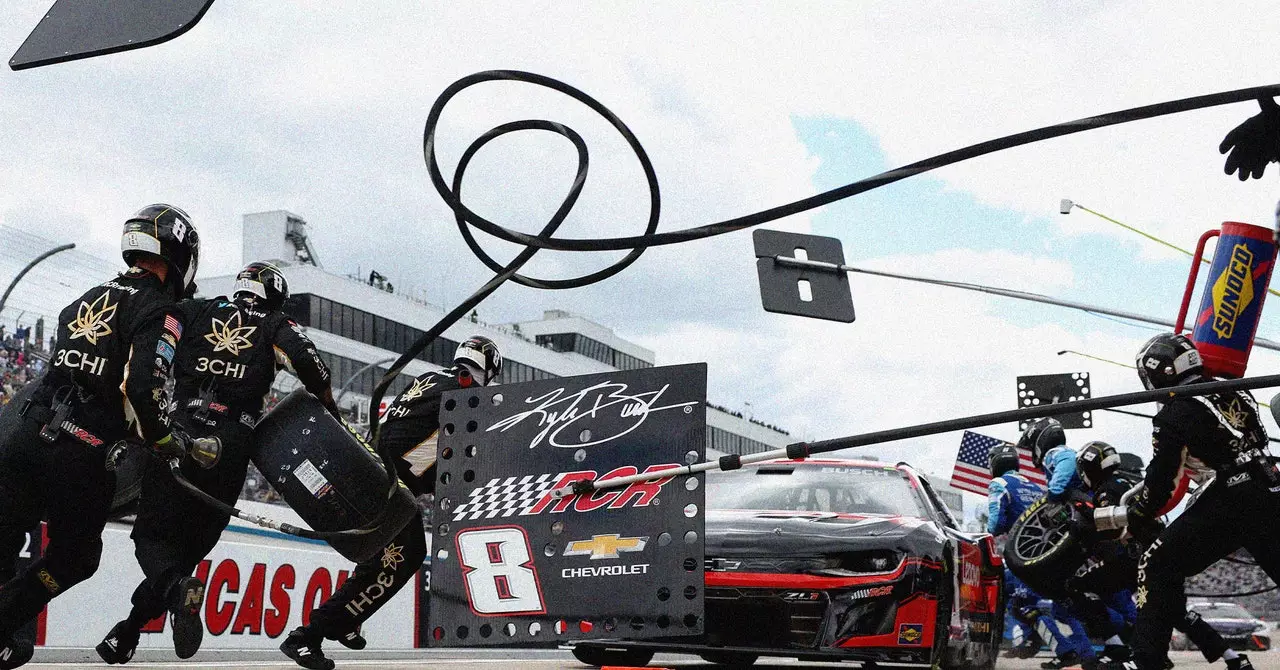When it comes to motorsports, Nascar has managed to build a strong TV audience in the US, despite facing a slight decline in viewership for Formula One and IndyCar championships. While European race fans may view stock car racing with a sense of disdain, the allure of Nascar lies in its high-octane, low-tech, normally aspirated pushrod V8 engines. The 670-hp output, combined with a capacity of 358 cubic inches (5.8 liters), provides a unique racing experience that captures the attention of fans and enthusiasts alike.
One of the key players in enhancing Nascar’s performance is Lenovo, which has partnered with Richard Childress Racing to revolutionize pit stops during races. With Nascar Cup Series events featuring anywhere between five and 12 pit stops, efficiency is crucial for success on the track. Lenovo’s collaboration with the racing team involves the use of Artificial Intelligence (AI) to provide real-time insights into refueling, a critical aspect of any Nascar race.
Fuel mileage plays a pivotal role in Nascar racing, with teams constantly monitoring the amount of fuel consumed during pit stops and the rate at which it is being used on the track. Unlike Formula One, where refueling has been banned since 2010 for cost and safety reasons, Nascar relies on strategic planning and meticulous calculations to ensure optimal fuel efficiency. The absence of fuel gauges in the cockpit means that teams must rely on data and technology to make informed decisions during races.
Lenovo’s AI team has developed a system that uses in-car transponders and a camera mounted above the pit box to identify when a car enters the pit stop area and initiate a real-time video feed. By analyzing frames at a rate of 30 frames per second, the system can accurately determine the precise moment when the fuel can is plugged or unplugged, with an accuracy of about 0.03 seconds. This level of precision allows teams to calculate the exact quantity of fuel delivered to the car, eliminating the margin for error that was previously present during manual calculations.
The implementation of AI technology in Nascar racing not only improves the accuracy of fuel delivery but also enhances overall performance and strategy. By reducing the margin of error in pit stops, teams can optimize fuel consumption, minimize the number of pit stops required, and maintain a competitive edge on the track. The real-time insights provided by Lenovo’s system give teams a strategic advantage, allowing them to make calculated decisions that can ultimately lead to victory.
Nascar’s commitment to embracing technology and innovation in racing has positioned the sport as a formidable contender in the world of motorsports. By partnering with companies like Lenovo to implement AI solutions for pit stop optimization, Nascar teams are redefining the way they approach races and striving for excellence in performance. As the sport continues to evolve and adapt to new technological advancements, the future of Nascar racing looks increasingly exciting and promising.


Leave a Reply